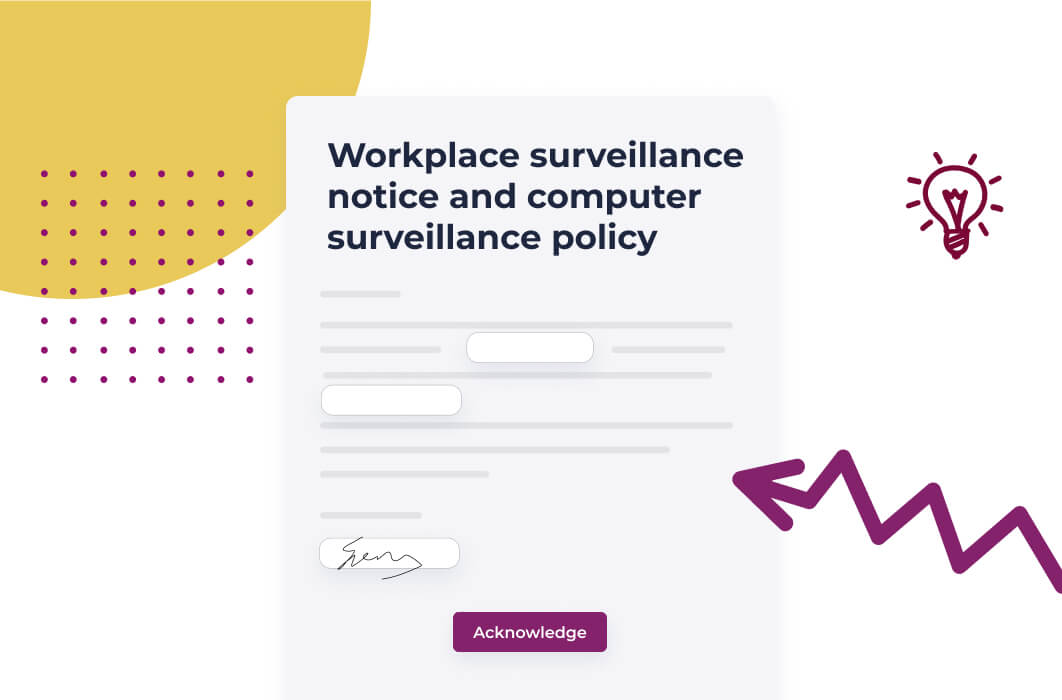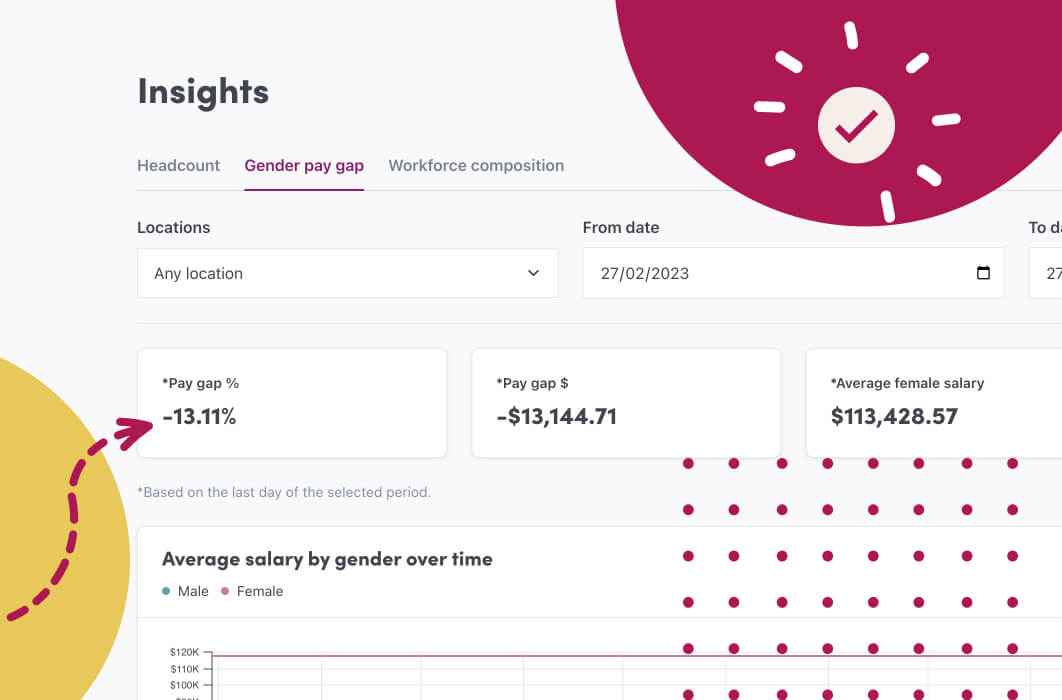What is a Workplace Policy?
A workplace policy is made up of a statement of purpose and a series of broad guidelines on action to be taken to achieve that purpose. Given the target audience for a policy is the employees of a business, it is recommended to write a policy in simple terms, free of jargon. The length of the policy may vary depending on the issue it addresses.
No matter what type of workplace or business you manage, properly writing and communicating policies are important. They help clarify the standards employees and the business itself should adhere to. Policies are often provided to employees in an electronic ‘handbook’ that clearly outlines all workplace policies and procedures, or the policy itself may form part of the employment contract.
Download our free policy templates. Created and curated by Source HR, these contracts are designed for Australian business and are available now
What are the benefits of having company policies and procedures
A well-written company policy can help a business in many ways.
Optically, to employees or clients and vendors, well written and communicated policies show that the organisation is efficient and diligent in its operational procedures.
In the event of unfair dismissal claim, WHS prosecution or liability claims, policies can also benefit employers in their defence.
But there are other benefits such as they:
- help all employees clearly understand your expectations with respect to standards of behaviour and performance.
- provide a set of consistent guidelines for decision-making in everyday situations that employees can refer to.
- ensure employee equally, uniformity in employee treatment, and consistency in decision-making and operational procedures.
- provide all with a documented method of dealing with complaints and misunderstandings – including whistleblowing – which helps to avoid claims of favouritism or discrimination.
- can assist in employee performance management and accountability.
Communicating policies to staff
A workplace policy is not effective if employees don’t know it is there. And this is a leading issue for most businesses. Take for a minute an employee abuses a ‘fair use of ride share’ policy – and racks up $1000’s of dollars in charges. Unless they have seen, or a business can prove they have seen a policy that shows they have broken rules, there really is nothing that can be done. And the policy is rendered useless.
The most effective way to communicate policies and procedures is using HRIS software that can track distribution, manage who receives what, and requires digital acknowledgment that the policy has been understood.
Another key to success is regularly updating and reviewing workplace policies and procedures. On top of this, pairing holding training sessions with employees to outline the changes. This way, you can ensure that, as a business, you are all ‘pulling in the one direction’.
More information about the importance of workplace policies and procedures
In this video, Source HR deep dive into workplace policies and how important they may or may not be to your business.
Are policies and procedures as critical as Google would have you believe? If you do a quick Google search, you will find pages upon pages of information talking about just how important workplace policies are and often recommending a full suite of policies. Including, I think I’ve seen up to 21 to 25 separate individual policies being recommended in some cases. Now that’s a lot of work and a lot of work to administer. Is there a legal obligation to have these policies in place? Well, the answer to that is no, there’s no positive legal obligation to have workplace policies in place. So my answer to this is always, don’t have workplace policies unless they are necessary or helpful to the business.
What workplace policies and procedures would we recommend?
So what kind of policies would I recommend? Well, I’d always recommend WHS policy. So as an employer, you have an obligation to ensure a safe and healthy workplace for your workers as far as reasonably practicable. So what does that mean? It means that you need to take all reasonably practicable steps in order to ensure a safe workplace, minimise risks, minimise incidents, accidents, et cetera.
So a reasonably practical step is probably having a WHS policy in place. And I would expect that policy to cover off things like the duties that workers have to themselves and to each other and their responsibilities in terms of identifying incidents, near misses, hazards, et cetera. Obligations on managers and directors, and also understanding, okay what is a risk? What is an incident? What is a hazard? And when do I actually need to report those things? And to whom.
Similarly, a bullying, harassment, appropriate workplace behaviour policy, I’d always recommend. Again WHS reasons, an employee has the right to not be bullied in their workplace. So again, the policy should set out what actually is bullying? What is harassment? What is or isn’t appropriate workplace behaviour? And if people see this or experience this, where should they go with that information? I’d also probably recommend an appropriate IT and social media policy. So that if you have employees who are misbehaving on the internet or bringing your company into disrepute or using their company property for interesting reasons, then you can take action on that basis. Beyond that, I would really consider whether or not you need those policies.
What about a disciplinary procedure policy?
The other thing I would really recommend against, as a lawyer for someone who represents businesses, is a disciplinary procedure policy. So if you can get away with not having one of those, that would be the right thing to do.
Often we see with these procedures, they will go in detail of the actual process that the company is going to take if an employee isn’t performing well or has engaged in inappropriate conduct. Now that means that there’s a really inflexible process for you. If you decide that, hey this is actually so serious that I don’t want to proceed to a second warning letter. I actually want to terminate their conduct because they’ve sexually harassed someone for example. Then your own policy may limit you, or may put you in a position of risk that otherwise you would not need to do. So that’s just my views on those. Have a look at those workplace policies that you have. Always with the frame in mind of, are they necessary? Are they helpful to us as a business?
Manage your Workplace policies and procedures
Reduce risk and ensure legal compliance with simple tools to manage policies, qualifications, approval processes and more.
Document Management Software
Subscribe for more Australian employment updates.
Stay in the loop
Worknice partners with Source HR
Who is Source?
On-tap HR services, without the in-house price tag
Worknice has partnered with Source to provide expert advice that leverages our technology platform. Get on-tap access to a team of experienced HR specialists and employment law professionals to help your business and people thrive. Whether you want ongoing HR support on a monthly retainer basis, or you just need HR expertise for specific projects, Source HR can help.
HR Advice + employment law advice
Pair your HR technology with professional services. Access ongoing HR and legal support on a monthly retainer.
It’s never been more critical to have the right support to navigate change, maximise performance, and protect your business. Backed by employment law expertise, Source HR combines operational and strategic HR services alongside the Worknice platform. The Source team gets to know your business intimately and builds a deep, supportive relationship to provide in-house style expertise that is tailored to your business needs.




